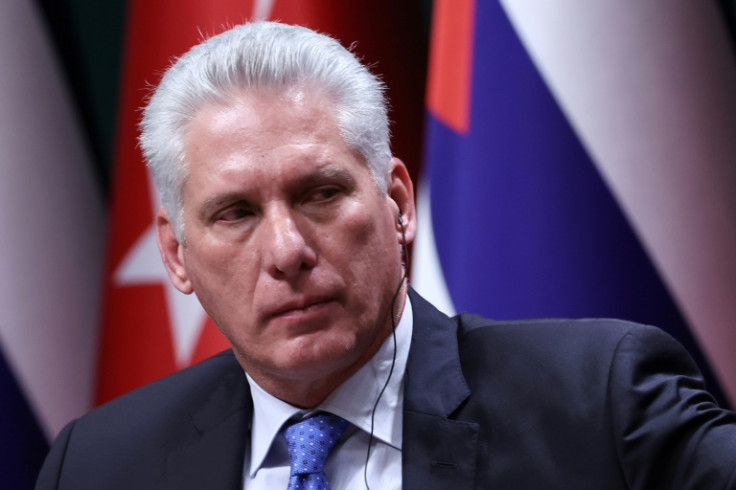
The president of Cuba, Miguel Díaz-Canel, said Thursday that his government has ensured the availability of essential subsidized food rations to ease tensions, following recent protests triggered by widespread shortages.
The president appeared on the mid-day TV newscast to make the announcement. In the address, he noted that his administration has made an "enormous effort" to ensure that the entire 11 million population gets a proper food supply.
"April and May are going to be months with better prospects," he said, Reuters reported. "The Cuban government will continue to be committed to guaranteeing the people their levels of essential foods."
Since Fidel Castro's 1959 revolution, Cuba has been providing its citizens with a monthly ration of staple items like rice, beans, sugar, cooking oil and coffee. However, due to an ongoing economic crisis, these rations have been gradually reduced over the years, resulting in shortages and increased prices.
Aside from food shortages, the Cubans are also dealing with oppressive 10-20 hour-long blackouts across the country. This condition of the country led to several hundred protesters gathering on March 17 in and around Santiago de Cuba.
In response, the government took action to alleviate tensions by rapidly increasing electricity generation, effectively minimizing the blackouts that have created trouble for the Cuban people for months.
The vice minister of Foreign Trade, Oscar Pérez, said during the newscast that basic food items would also be guaranteed until June. "We can confirm without a doubt that we have the availability of fundamental products such as rice until the month of June," he said.
He mentioned the government was making efforts to ensure the availability of both wheat flour for bread manufacturing and milk for children until June. The cost of Cuba's food ration program is estimated at $230 million per month.
Senior Cuban officials opened up last year in November regarding the ongoing economic crisis in the country, saying that food production and pharmaceutical supplies alongside transportation were at least 50% less compared to 2018.
© 2025 Latin Times. All rights reserved. Do not reproduce without permission.







